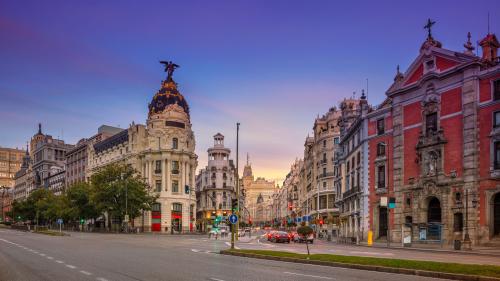On November 8, Tony Pipa hosted Mayor Brian Bowman of Winnipeg, Canada for a discussion of Winnipeg’s leadership on indigenous inclusion, climate change, COVID-19 resilience, and smart technology.
Watch the whole conversation here or read the highlights below.
Bowman entered office in 2014, at a time when public trust in Winnipeg’s government was especially low. His ambition included growing Winnipeg to a population of 1 million in a way that builds community trust and cohesion. Winnipeg has the largest population of Indigenous peoples in Canada, about 12.5 percent, a proportion that is expected to hit 25 percent when the city reaches its goal of 1 million residents.
Rebuilding trust started with reconciling Winnipeg’s history. The first Indigenous mayor of a Canadian city, Mayor Bowman confronted the legacy of colonization head-on and sought to leverage the knowledge and contributions of First Nations, Métis, and Inuit Peoples in local policymaking. Under his leadership, and through active participatory processes that engaged citizens across diverse perspectives, the city created an Indigenous Advisory Council, designated 2016 as the Year of Reconciliation, and developed the Welcoming Winnipeg initiative, which reexamines and updates historical markers to reflect the community’s recognition of Indigenous perspectives and contributions. In 2017, the City Council adopted an Indigenous Accord to foster partnerships and translate commitments into action.
As a physically isolated city, Winnipeg must reckon with a car-centric transportation system if it is to reach its sustainability aspirations—residential vehicles accounting for close to one-third of total emissions. Its climate action plan includes greenhouse gas (GHG) emissions reduction targets of 20 percent below 2011 levels by 2030 and 80 percent by 2050. The climate crisis reinforced the importance of sustainable development to Bowman, highlighting the interconnectedness of economic growth, connectivity, health, and community. The city expanded its Climate Action Plan into the OurWinnipeg 2045 strategy, which was aligned with the Sustainable Development Goals (SDGs) to capture global governance and collaboration. Peg, a local data dashboard aligned with the SDGs, forces the city’s leadership to face the facts and identify the key gaps of municipal action, paving the way for the city’s first Voluntary Local Review (VLR).
The Brookings Institution is committed to quality, independence, and impact.
We are supported by a diverse array of funders. In line with our values and policies, each Brookings publication represents the sole views of its author(s).








Commentary
A conversation with Mayor Brian Bowman of Winnipeg, Canada
December 15, 2021